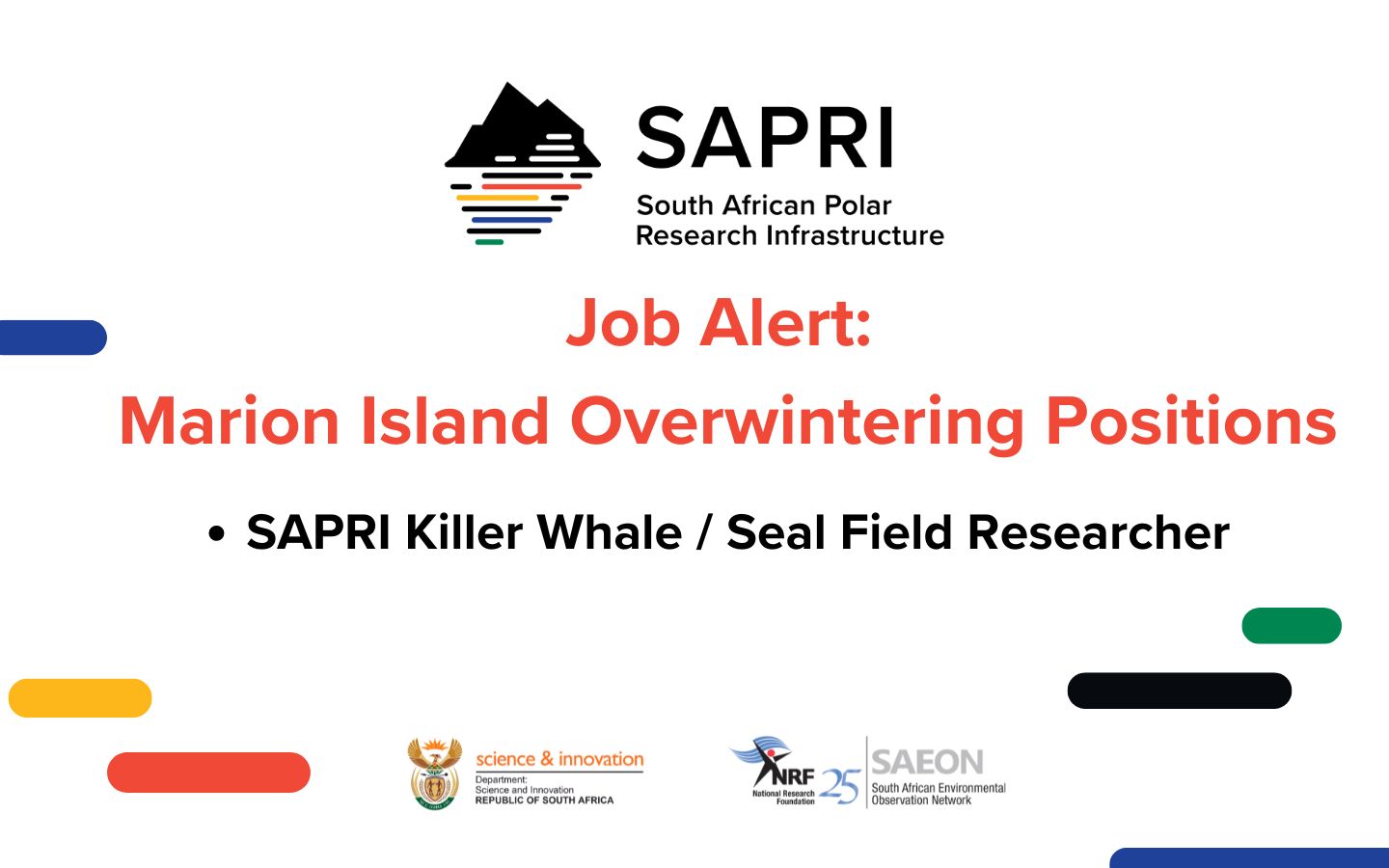- Overwintering Killer Whaler
The South African Environmental Observation Network (SAEON) Egagasini Node, based in Cape Town, Western Cape, requires the the services of a suitably qualified individual to be responsible for collecting field data on Killer Whales to be used for conservation and academic purposes as part of the South African Polar Research Infrastructure (SAPRI). All overwintering positions involve undertaking fieldwork under very rigorous and extreme conditions (cold, wet and windy 95% of the time). Meticulous observation, note-taking and record-keeping abilities are important. As is being able to manage large electronic datasets, electronics, (e.g. satellite relay data loggers) and a storage facility.
As per job advertisement:
Key Responsibilities
- Monitoring and data collection of killer whales and assistance with seal work
- This includes: behavioural observation, photographic mark-recapture, satellite device deployment, biopsy sampling and measurement
- Satellite device deployment and removal, weighing, sampling, measuring, observations
- Remote field work without direct supervision
- Field work will encompass 65% of the time, with a lot of walking (4000 – 6000km) in gumboots during the contract time frame
- Office and laboratory work for sample management and data analysis
- A large proportion of time is allocated to assisting with dedicated sealer observations
- Data capturing, analysis, and reporting
- Rigorous outdoor activity in harsh conditions
- Management of equipment Teamwork at the base i.e., the research station
About The Employer:
The National Research Foundation ( NRF) supports and promotes research and human capital development through funding, the provision of National Research Facilities and science outreach platforms and programmes to the broader community in all fields of science and technology, including natural sciences, engineering, social sciences and humanities. SAEON is a research platform funded by the Department of Science and Innovation (DSI) and managed by the NRF since 2002. SAEON is mandated to observe and research ecosystems on land, in coastal regions and the oceans to understand how those systems function and might change over time and space when influenced by socio-economic driving forces including climate change. We deliver our data online and offer tools, services and advice for informed environmental policy-making.
The Marion Island research station is managed and administered by the Department of Forestry, Fisheries and the Environment (DFFE).
Apply before 10 October 2024
Rabia Mathakutha, South African Polar Research Infrastructure, 26 September 2024




